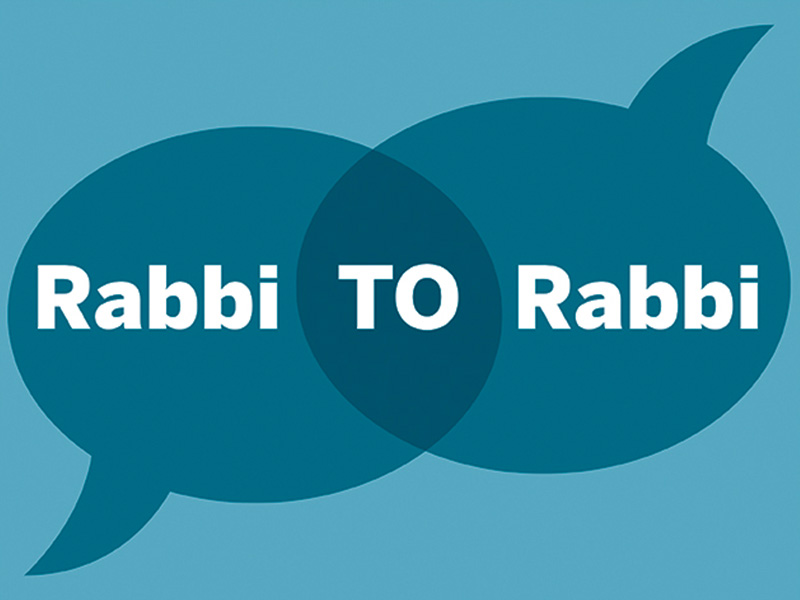Jews may not have been in this country when wrongs were committed, but all Canadians continue to live with the collective past of this nation
Rabbi Adam Cutler
Beth Tzedec Congregation, Toronto
Maharat Rachel Kohl Finegold
Congregation Shaar Hashomayim, Montreal
Rabbi Cutler: Earlier this year, my shul sent a youth delegation to meet First Nations teens at the North Bay Indian Friendship Centre. We have partnered with other synagogues to hear from indigenous speakers during a Shabbat dinner, are organizing with Ve’ahavta and others a four-part series in September, and will soon be co-sponsoring an evening featuring Minister of Indigenous Affairs and Northern Development Carolyn Bennett and prominent indigenous voices. Other programs, including a featured event on Yom Kippur, are in development.
As a native Torontonian with little education on Canada’s indigenous people and even less personal interaction, these kinds of events have been wonderfully eye-opening and powerful. They also necessarily cause us to reflect as Jewish Canadians. What is our role in reconciliation? Do we start with listening or attempt to dialogue, sharing our story as well as hearing the stories of others? To what extent can and should Jews see themselves as part of the Canadian establishment?
As a relative newcomer to Canada, and as an Orthodox religious leader, what role do you see for yourself when it comes to reconciliation with Canada’s indigenous peoples? What does reconciliation mean for you?
Maharat Finegold: I am impressed with the way that your community has embodied the Jewish responsibility to pursue justice, speaking truth about the violence and disrespect that was perpetrated against the First Nations community. But I wonder to what extent must we take responsibility for the actions of our Canadian predecessors? For many of us (myself included), our ancestors were not on Canadian soil when these wrongs were committed. Must we repent for the sins of those who came before us? In the Jewish High Holiday liturgy, we do recognize that children suffer the consequences of the sins of the fathers. Perhaps if we remain silent, we are in some way complicit in the crimes of the early Canadians.
In order to reach reconciliation, the truth must first be acknowledged. It is our opportunity to speak the truth – to give voice to the experience of the victims, to acknowledge the injustices that were done – in order to then heal the wounds of the past. If we can come to terms with what did occur, we can then move forward into a better future. Perhaps there are important lessons here about the process of repentance, and the healing of wounds between any two people.
Rabbi Cutler: The Amidah begins with references to our spiritual patriarchs (and, in some traditions, matriarchs). We do so seemingly to draw upon their merit in the hope that it will be for our benefit. If we feel comfortable and confident in turning to the memory and deeds of our ancestors for good, I think we are obliged to take stock of their failures as well and take steps toward redress. It is not a question of assigning personal blame, but a matter of national duty to understand and own our collective past as we aim for a better future.
This understanding of the Jewish community’s involvement with reconciliation feels different than the traditional approach to tshuvah (repentance), which is mostly understood as limited to an individual seeking forgiveness for her or his own failures. This strikes me as more connected to the imperative of l’taken olam b’malchut shaddai – attempting to create a more perfect world in the Almighty’s dominion.
How do you understand the Jewish community’s involvement in reconciliation efforts? What if any imperative is there within Jewish sources? Is it a mitzvah?
Maharat Finegold: Your reference to “collective past” is a great way to frame the issue. We may not have been there, but we in Canada continue to live with the collective past of this nation. Our sages were often concerned to sustain darchei shalom – that is, a concern for sustaining peace with neighbouring cultures and communities.
As Jews,we have been fortunate enough to be welcomed in Canada. Our cultural needs have been respected and honoured. We can help bring about that honour and respect for all cultures.
And as Canadians, we are the ones who have wronged those more vulnerable. We have the opportunity, even the duty, to ensure darchei shalom for all the citizens of our country. The reconciliation effort is surely a Jewish imperative.
